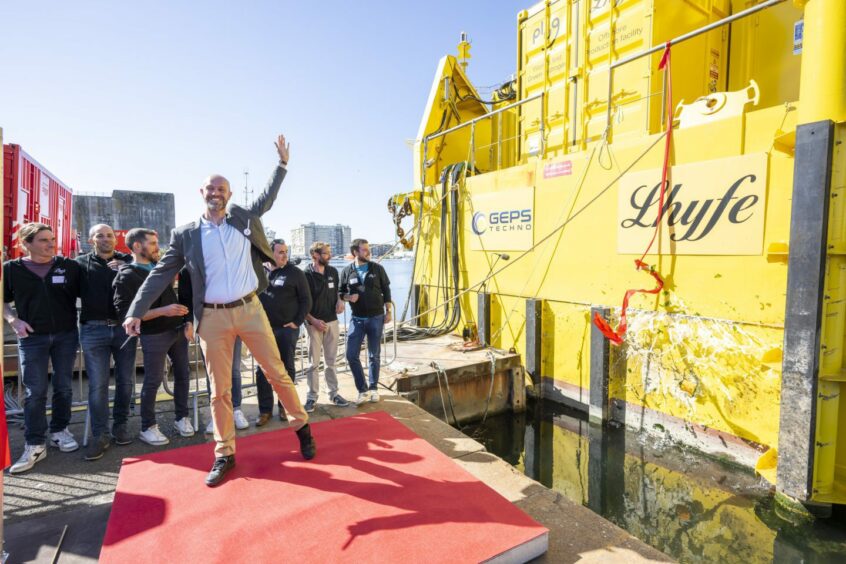
Lhyfe, the french hydrogen company that recently inaugurated the world’s first offshore hydrogen platform, has set up shop in Newcastle with Colin Brown at the helm.
Mr Brown, Lhyfe’s UK country manager, spoke with Energy Voice on the Newcastle branch’s expectations moving forward, setting up a team and hydrogen’s potential in the UK.
Energy Voice (EV): What are the goals for the UK branch?
Colin Brown (CB): “The initial goal is, I need to build a team, we need to build a business that can deliver projects and we want to deliver green hydrogen to customers to help them decarbonise.
“That’s it, we need the projects in place to allow us to do that. So day one is to build a team, and day two (probably in parallel actually) is to look for the opportunities to build projects that allow customers to meet their decarbonisation plans moving forward.”
EV: How many jobs are Lhyfe looking to create in the UK
CB: “I’ve set my offices up in Newcastle, my aim is to have a team of six, including myself, by the end of this year. So we’ve got one person signing a contract already, I can’t say anything about it but hopefully, he’ll be starting at some point this year.
“We’ve got another three jobs that we’re recruiting for now and I hope to have one more by the end of this year.”
EV: With the county’s wealth of experience offshore, can we bring the technology from the offshore hydrogen platform to the UK?
CB: “Yeah, I think this (the Lhyfe hydrogen platform) is a demonstrator project and this is kind of where renewable electrolysis offshore starts. You can’t just jump from this to a huge platform, you’ve got to start somewhere and this is it, it’s proof of concept, it’ll get a project out there and we’ll learn from it, we’ll learn as a company but hopefully the industry will learn as well because we need an alternative route to market.
“If you’re looking in the UK, the amount of offshore generation potential and the number of offshore wind farms that are currently in development in the UK, they can’t all be grid connected so we need to get as much green electricity onto the grid as we can but we can also use what’s not on the grid to produce green hydrogen, which hopefully at some point will become our main form of gas.”
EV: What benefits could Hydrogen bring to the UK?
CB: “It helps meet the decarbonisation targets for sectors that can’t necessarily electrify, so your big transport, anybody who needs power constantly.
“But it also allows the UK to create new skills, if we’re going to transition across on the oil and gas sector, we can use some of those skills and help them transition into working within the green hydrogen production sector.
“If the UK gets ahead of the game on it and the hydrogen business model is driving that a little bit, people from across Europe are quite jealous of the subsidy model that has been released by BEIS. It’s these steps that will allow us to become a world leader, everybody talks about it but somebody has to be it so why not the UK?
“We can attract manufacturing to the UK through consumer technology, whether that’s engines, generators, electrolysers, busses. So there are really interesting opportunities around that.
“There are also the supply chain opportunities, we’ve got ITM power that produces the electrolysers in the UK, we could attract more electrolyser companies in, we can attract companies producing pumps and tube trailers.”
“So we can create jobs and opportunities for the future”
EV: Will hydrogen be able to take advantage of the expertise built up in the fossil fuels industry?
CB: “I really think so because it’s gas. It’s a gas that people have been using for a long time. It’s not new, it’s producing at a commercial scale with renewable sources that’s the new bit.
“We need to handle, produce and use the hydrogen and so it’s probably slightly different to how some of the oil and gas employees work today but the skill set is absolutely there.”
To read more on Lhyfe’s recent offshore hydrogen platform, click here.
Recommended for you


 © Supplied by Lhyfe
© Supplied by Lhyfe © Supplied by Lhyfe
© Supplied by Lhyfe